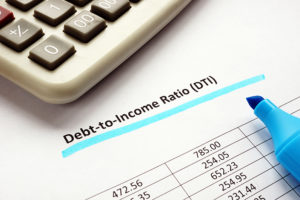
Taking out a loan can help you build your credit. But remember, to get that benefit, loans must be paid back in full and on time, and according to the terms of the loan agreement. When these terms are not met, the lender can take steps to repossess collateral and collect any money that is owed. As a result, the defaulted loan can be listed negatively on credit reports and lower your credit scores.
Let’s take a closer look at how this all works.
 What is the difference between a credit score, credit furnisher and credit reporting agency?
What is the difference between a credit score, credit furnisher and credit reporting agency?
Banks and lenders use your credit score to decide whether they’ll approve you for new credit. A credit score is a three-digit number that relates to the payment history on your accounts. When a prospective lender looks at your credit report and sees that you’ve got a history of borrowing and repaying loans on time, they’ll view you as a good risk, and have confidence that you’ll do so with them.
If your credit payment history has been inconsistent, a prospective lender may view you negatively and as a high risk for repayment of the loan. Consequently, your loan application may be denied, or you may be offered less favorable terms, such as a higher interest rate, reduced loan amount, or an onerous payment schedule.
Credit furnishers– banks, mortgage lenders, credit card companies and other financing companies – provide consumer’s account data to the credit bureaus. The furnisher’s responsibility is to provide accurate information to the three main credit bureaus, Transunion, Experian and Equifax. The credit bureaus generate reports that show the consumer’s account history and illustrate whether he or she may be a good credit risk. Both the credit furnisher and credit bureaus are responsible to provide a consumer’s account information accurately.
Before applying for a loan, consumers should check their credit reports for accuracy. If the reports list errors, the consumer must send written disputes to the credit bureau. If the errors are not corrected, the consumer’s credit score may drop, ultimately jeopardizing his or her ability to be approved for a loan.
When should I borrow money?
Only borrow money when you need to and in ways that make good financial sense. For example, borrowing to buy a home or for your education can yield more money in the long run. You build up equity in a home and can even sell it at a profit; or, getting a degree can increase your earning power.
Taking on a new loan demands responsibility. You must be able to pay it back in order to have it benefit your credit. Obtaining loans to pay for recurring expenses, such as utilities, do not make good financial sense. You may need to consider other ways to satisfy those obligations, such as reorganizing your budget or taking a second or part-time job.
How does my Debt-to-Income Ratio impact my ability to borrow?

Taking on new loans can reduce your ability to borrow. When you apply for a new loan, lenders will look at your existing debts and calculate your debt-to-income ratio (DTI) to determine whether you’ll be able to take on another monthly payment.
Your DTI is the percentage of your monthly income, before taxes, that goes toward paying all your debts. A high DTI indicates the consumer has a lot of debt to juggle and may have a hard time making payments. A prospective lender may choose to deny a loan application when the borrower’s DTI is too high.
Many times lenders will look at your “credit mix” or the balance of credit on your report. A mix that includes an auto loan or a mortgage is better than one that only includes credit cards, and may impact your credit score positively.
What happens when you miss payments?
 If you miss loan payments, your credit score will drop, making it harder to borrow in the future. As well, a lower credit score can impact existing credit. Current creditors may elect to increase interest rates or lower credit limits.
If you miss loan payments, your credit score will drop, making it harder to borrow in the future. As well, a lower credit score can impact existing credit. Current creditors may elect to increase interest rates or lower credit limits.
When the borrower misses payments, the creditor may choose to place the debt in collection. Between collection calls and letters, the pressure may become intolerable at a time when you’re trying to balance the challenges of a financial hardship. The borrower may benefit by contacting the creditor to discuss alternative payment options in advance of the collection phase.
When is a good time to apply for a new loan?
Lenders will run a credit check with each new loan application, creating an inquiry on your credit report. Inquiries can signal that you’re in financial trouble and need money, which could lower your credit score. Numerous inquiries and credit denials may damage your score and make it difficult to get approved for a new loan.
For people with higher credit scores, this drop is usually nothing to worry about. But if your score is lower – or you have a shorter credit history – this drop can be the difference between getting approved for the new loan or not.
Good credit is important. So is an accurate credit report. Always request your credit score and credit reports before submitting a loan application.
Should I co-sign a loan?
Co-signing a loan for someone else can affect your credit score and ability to get credit of your own. Be sure that co-signing is a good financial decision for you. As a co-signer you are lending your name and good credit history to the primary borrower. The downside of being a co-signer may include:
- If the co-borrower defaults, you will be responsible for the payment.
- Late or partial payments by the co-borrower will be listed on your credit report.
- You could be sued if the loan is not paid by the co-borrower. Additionally, you may have a tax obligation for the settled debt.
- You could be denied a loan that you need. The co-signed loan amount is added to your DTI even though the co-borrower is supposed to make the payments.
- Your name can not be removed from the loan until it is satisfied.
When your loan is denied because of credit reporting errors, Seek Legal Help!
Flitter Milz is a nationally recognized consumer protection law firm representing consumers in matters against the credit bureaus and credit furnishers for inaccurately reported information on credit reports. Contact us today for a no-cost legal evaluation of your credit reports and why you were denied for a loan.







